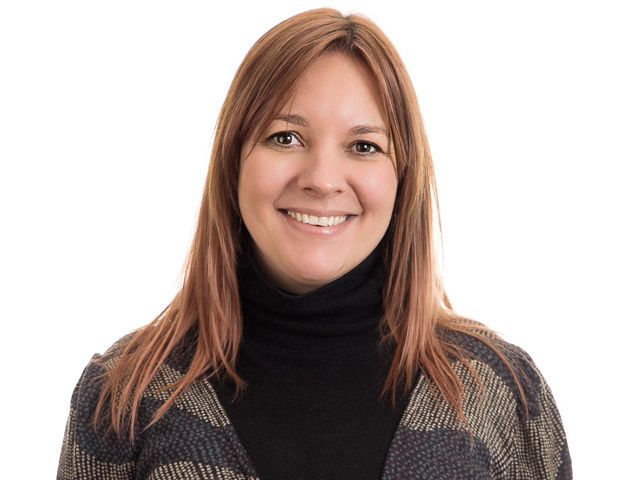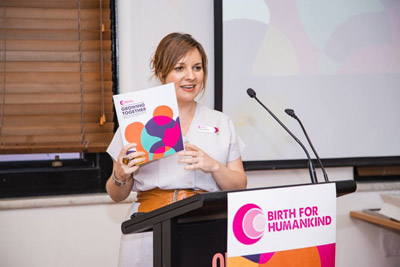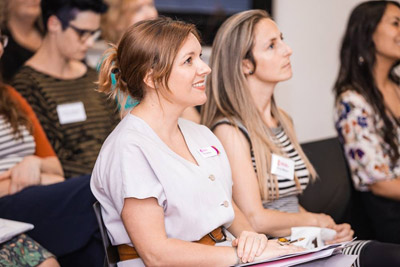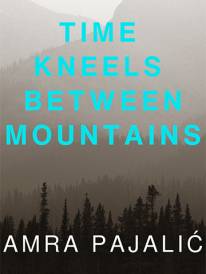Ruth Dearnley Birth for Humankind Interview

An Opportunity to Improve Maternal Health Care Outcomes for Vulnerable Women
Birth for Humankind, a Melbourne-based non-profit providing community pregnancy and parenting support, is calling for greater support for vulnerable and disadvantaged women through the maternal health system this International Women's Day.
Birth for Humankind CEO, Ruth Dearnley, says that International Women's Day is an opportunity to highlight the issues Australian women are facing, particularly with regards to pregnancy, childbirth and parenting.
"International Women's Day is an opportunity to not only celebrate the achievements of women, but identify ongoing issues we are facing today and take proactive steps to address them. In Australia, many women experiencing social and economic disadvantage are going through pregnancy, birth and parenthood alone and not receiving the support they need," said Ms Dearnley.
"Motherhood can be such an exciting and wonderful process. When we care for mothers and ensure they have support, we often see positive outcomes for both mum and bub. However, the reality is that only 8% of pregnant women in Australia see the same maternity worker during their pregnancy.
"That's where we step in. Birth for Humankind is known for its doula support program - a complementary service in the maternal health care system. Our doulas provide continuous emotional and practical support, alongside social workers and midwives, to help vulnerable women navigate the complexities of pregnancy and have positive experiences and outcomes."
At age 19, Carly moved to Victoria shortly after her mother passed away, started a new relationship and fell pregnant. She described her life as "going down a dark path" during this time. She's one of many women who go through pregnancy alone - without a support network to turn to - particularly young women, homeless women and those who have recently arrived in Australia without the language skills needed to seek help.
Carly's social worker suggested she might benefit from a doula, a role which was filled by Birth for Humankind Founder, Mei Lai Swan. With Mei Lai by her side, Carly gave birth to a healthy baby boy and was able to grow from the many challenges she had faced during her life. The two women both realised the need for doulas in the healthcare system for disadvantaged and vulnerable women. Mei Lai went on to create Birth for Humankind, and Carly served as a board director with the organisation and co-facilitated child birth education programs for young pregnant women.
"We must talk about this need, otherwise vulnerable women will continue to face this health inequality. Through discussion and awareness, we will be able to care for these women and give their babies the strongest possible start in life," said Ms Dearnley.
 Interview with Ruth Dearnley, Birth for Humankind CEO
Interview with Ruth Dearnley, Birth for Humankind CEO
Question: What is Birth for Humankind?
Ruth Dearnley: Birth for Humankind is a not-for-profit provider of free birth support and childbirth education to women experiencing social and economic disadvantage. We work with women across Melbourne and Geelong to get the care and support they need during pregnancy, birth and early parenting. Women experiencing hardship and their babies have been found to have poorer health outcomes than those without social or economic challenges. This includes women who are refugees or asylum seekers, experiencing homelessness, family violence, trauma or abuse. A proven way to address this is to provide continuous support and to build their confidence and prepare them for birthing and parenting.
Question: What's a typical day like for you at Birth for Humankind?
Ruth Dearnley: My days are spent raising awareness amongst hospitals, policy makers and supporters about the ongoing inequity in Australia's maternal health system and how complementary support services like ours can transform birth experiences and outcomes - which has a lasting impact on individuals and our health system as a whole. But it's the one-to-one support for women that is provided by over 65 volunteer doulas that is most important. We match our clients with a skilled birth support professional (a doula) who provides personal, emotional and practical support to women facing hardship during this very vulnerable time. It really can be life-changing, transformative work for the individual's involved. Importantly, it also models the ideal type of support that all women, but especially the most disadvantaged, need to thrive as mothers - which is rarely available in the public maternity system in Australia. In fact, only around 8% of women see the same midwife or doctor throughout their care. As eight in ten of the women we support have no other birth support person, they would be socially isolated and unsupported without a Birth for Humankind doula.
Question: How do you support women through the maternal health system?
Ruth Dearnley: The support we provide depends entirely on what women want. Our doulas may go to hospital appointments with their clients, talk to them about what to expect when expecting and talk through their different labour options. They ensure women have the resources they need to make informed choices for themselves. Our doulas are on call for the labour and will be there by her side throughout - a trusted friend, a hand to hold, plus they have a range of different practical, non-clinical skills that will improve her comfort and experience. After the baby comes, they'll regularly visit - usually weekly - for the first few months, to ensure that mum has the physical and mental health support she needs and the resources she needs to take care of the baby.
With cuts to resources, our public health system is losing a person-centred care approach, which means pregnant women's unique needs are not always being listened to. This is especially harmful to women who are vulnerable or socially isolated. There is a risk of worsening trauma if their prior history isn't carefully considered and their care adapted accordingly. Their rights and options may not be clearly communicated to them in a way they understand. Any one who has been through any public system knows that it can be confusing sometimes - and that would be far worse if you were new to the country or had other significant challenges you were trying to overcome at the same time.
Question: What is a doula?
Ruth Dearnley: The word doula comes from a Greek term, meaning 'servant to woman'. Today it is more generally used to describe someone who is trained to provide non-medical, but personal guidance and support to women and their families during pregnancy and birth. Birth for Humankind doulas are all very experienced in supporting births. As well as volunteering and being trained by us, they also work as midwives (working, retired or students) or run their own private-practices as doulas.
Question: How can a doula help disadvantaged and vulnerable women during pregnancy, birth and beyond?
Ruth Dearnley: Women experiencing disadvantage report that they commonly feel judged and disrespected when trying to use public maternity services. Plus many services are set up in a way that makes it hard for them to go to appointments. This is why they have poorer maternal and child health outcomes than other women. A doula can help them navigate and overcome these barriers and give them the confidence and support they need to demand better care, if they so wish. International evidence shows that when women have the support of a birth companion like a doula, they have far better maternal health indicators - they are less likely to need medical intervention during birth, their child is less likely to spend time in neonatal intensive care, and there is improved bonding between mother and child. This is the starting point for a lifetime of improved health and wellbeing.
 Question: What's the main message you hope to spread this International Women's Day?
Question: What's the main message you hope to spread this International Women's Day?
Ruth Dearnley: Women are strong, powerful and resilient - and nowhere is that seen more clearly than during birth. But we are leaving many women and their children behind by not providing equitable access to respectful maternity support.
Question: What advice do you have for a new mother and her family?
Ruth Dearnley: You know what is best for you, be sure to ask for it. This is incredibly hard advice to follow if you don't have access to all the information you need to make an informed decision or if you are led to believe that speaking up may jeopardise the support you get, which is commonly the case for our clients before they receive doula support. Everyone has the right to care that respects your wishes without judgement.
Question: How can Australians support Birth for Humankind?
Ruth Dearnley: We rely on public donations to provide this critical support to women in need. We don't want to have to turn any vulnerable woman away because we don't have the funds to support her. You can give or find out more at www.birthforhumankind.org/donate.
Question: What's next, for Birth for Humankind?
Interview by Brooke Hunter
MORE



